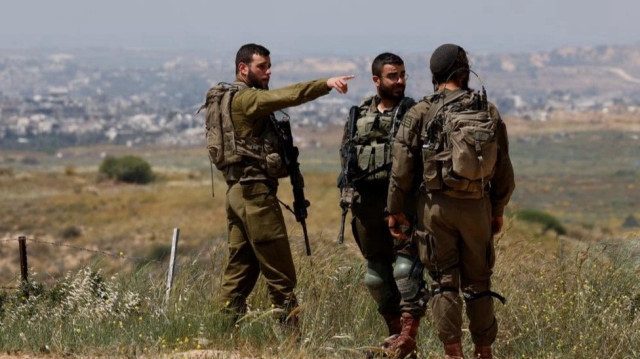
‘They couldn't free their captives through military operations and had to resort to negotiations,' senior Hamas member tells Anadolu
Israel's failure to achieve its military objectives forced it to seek concessions at the negotiation table, said Mohammad Nazzal, a senior member of Hamas's political bureau.
"Israel aimed to rescue (its) hostages, dismantle the resistance -- particularly Hamas -- and fully occupy Gaza. None of these objectives were achieved," Nazzal said in an exclusive interview with Anadolu.
"They couldn't free their captives through military operations and had to resort to negotiations. At this point, hostages can only be freed through the ceasefire agreement," he said.
He stressed that Israel, unable to achieve its goals through military action, tried to gain through diplomacy what it couldn't accomplish on the battlefield.
"Israel worked hard to extract concessions during the negotiations,” Nazzal noted. “Ceasefire negotiations are undoubtedly a critical part of the political struggle, not just military."
He further underscored that Israel's declared goals were unattainable through its military aggression.
"For nearly a year, intermediaries from Qatar, Egypt and the US have led this arduous process. Israel's inability to achieve its objectives through military operations ultimately forced them to the negotiation table."
While detailing the negotiations, Nazzal acknowledged Türkiye's key role in achieving the ceasefire agreement.
"Türkiye has never been distant from these negotiations and closely followed developments. Despite Israel's objections, we consistently stressed the need for Türkiye's involvement," he said, recognizing Türkiye's influence even without direct participation.
"Even though they were not directly at the table, the Turks continuously and resolutely monitored the negotiations. Their influence in shaping the process and the resulting agreement has been immense," he added.
While recognizing US President-elect Donald Trump's influence on Israel, Nazzal emphasized that the real reason Israel agreed to the ceasefire was the Palestinian resistance and its failure to achieve its goals through military means.
Israeli Prime Minister Benjamin "Netanyahu accepted the agreement not just due to Trump's pressure but also as a result of resistance efforts," he said.
He also addressed comments by Netanyahu about increasing Israel's military presence in Gaza's Philadelphi Corridor.
"Netanyahu makes such statements to cover up failures. Our aim is to ensure the removal of Israeli soldiers from the Philadelphi Corridor."
He also explained the delays in submitting hostage lists, attributing them to ongoing Israeli attacks in Gaza.
"Hostages are in various locations, and continued assaults hinder communication," he said.
Nazzal warned that Hamas is prepared for any potential violations of the ceasefire by Israel.
"We are committed to the ceasefire, but if Netanyahu violates it, we are prepared for any scenario," he said.
On Gaza's post-ceasefire governance, Nazzal proposed a technocratic administration to involve all Palestinian groups.
"We don't claim exclusive governance over Gaza. We propose forming a technocratic team involving all Palestinian groups to manage Gaza across various sectors," he said.
He also emphasized the importance of rebuilding Gaza following the ceasefire agreement.
"Rebuilding Gaza is a priority, and we are working towards it in coordination with various parties."

